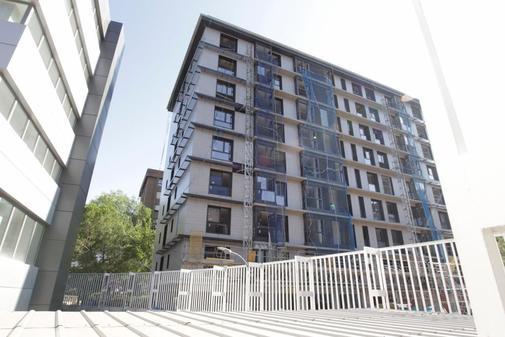- P&R. The farewell of Draghi: threat to the saver and oxygen for the mortgaged
The latest measures of the European Central Bank (ECB) have had an almost instantaneous effect on the Euribor . The index to which most of the mortgages in Spain are referenced accumulates more than three and a half years in negative territory, but in recent sessions, after the intervention of Mario Draghi, it has slowed the unstoppable decline of weeks ago and has returned to levels of last August.
That month, the index set a new historical low at -0.356% and continued down to -0.373% on Thursday, the day of the ECB meeting. Investors assumed that the European entity would announce a rate drop, but ultimately it was not. "The Euribor is closely linked to interest rates. By not announcing a new decline, as expected by the markets, the index began to recover some of the lost ground and that is what we are seeing these days," explains Joaquín Robles , analyst at XTB
On Friday, one day after the appearance of Draghi, the Euribor had already recovered to -0.325%, and yesterday Monday continued to rise until closing the session at -0.309%, thus recovering in two days part of what was lost in more Month and a half.
Despite the rebound, experts agree that it is a timely reaction linked to the latest monetary policy measures announced by the ECB. After its last meeting, the institution kept the reference interest rates unchanged, but established the tiering or ranking of the deposit facility applied to banks, something that, in practice, amounts to a rise in interest rates and Gives some oxygen to financial institutions.
"It is a recovery that will have a limited effect and is likely to remain in the environment of -0.3% in the coming weeks," says Joaquín Robles.
Nor will it have a notable impact among the mortgaged . "These recent oscillations are barely noticeable," the analyst adds, "since the revisions are usually quarterly or semi-annual. Even so, obviously, the larger the mortgage, the more the effect will be noticed."
Optimism, for now, has little travel. Despite the slight rise in these sessions, the market discovers that the Euribor will remain in negative territory for a long period, the same as the interest rates remain at current or even lower levels.
The indicator has already accumulated 42 months in negative territory , since February 2016, and in theory this is favorable for mortgage loans with variable interest. However, consumers prefer to avoid the ups and downs of the last crisis and seek security, hence the number of mortgages granted at a fixed rate has increased, to the point that they are approaching equity with the variables.
And not only customers demand them. Banks are also boosting their commitment to these types of products in an attempt to compensate for the drop in margins of their business in the environment of current rates. In fact, entities are immersed in an aggressive race to offer competitive products; the other alternative goes through an increase in the differentials of the variable credits, so that this increase partially compensates for the Euribor drops.
According to the criteria of The Trust Project
Know more- Mario Draghi
- Mortgages
EconomyMore 'doping' from Frankfurt against the economic brake in Europe
In the office of ... José Sevilla: "There are already those who pay 0% for their mortgage after the fall of the Euribor. It is unsustainable"
Housing Record of fixed mortgages despite the Euribor debacle Is it time to sign a variable?

